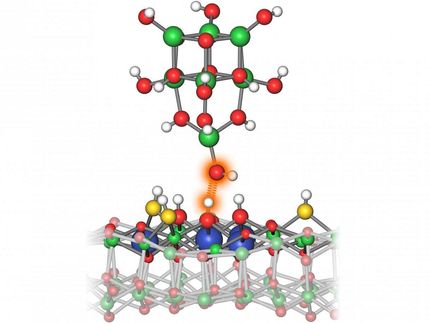LLNL and Chevron sign fuel catalysis agreement
Advertisement
Lawrence Livermore National Laboratory has signed a research agreement with Chevron to develop the next generation of catalysts for production of clean, more efficient fuels from crude oil. The research will focus on how catalytically active surfaces form and change on contact with feed molecules and, in particular, over time, how they are influenced by promoters and impurities. This work will utilize state-of-the art in situ methodologies developed at LLNL to examine catalysts in realistic environments and will focus on specific catalysts that exhibit high reactivity and resistance to sulfur poisoning.
Chevron would like to gain a better understanding of the promoter effects and impurity interactions at the atomic scale to improve catalyst efficiency, particularly effects of substitution of various metal atoms that influence catalyst selectivity and stability. LLNL's expertise in crystal growth and technical skills in the use of novel in situ surface techniques (such as atomic force microscopy - AFM) will enable Laboratory researchers to examine impurity interactions with catalytic surfaces at higher resolution than has been previously achieved.
"In-situ AFM studies in fluid environments can provide unprecedented resolution of catalytic processes," said Chris Orme, a senior scientist in LLNL's Biosciences and Biotechnology Division and principal investigator on the project. "This is an area where we have a lot of experience and we can -help industry create a better and cleaner fuel."
Chevron brings their knowledge of catalyst materials and hydroprocessing, as well as experience in assessing the technical and economic viability of transforming laboratory results into industrial-scale processes.
Most read news
Topics
Organizations
Other news from the department science

Get the chemical industry in your inbox
By submitting this form you agree that LUMITOS AG will send you the newsletter(s) selected above by email. Your data will not be passed on to third parties. Your data will be stored and processed in accordance with our data protection regulations. LUMITOS may contact you by email for the purpose of advertising or market and opinion surveys. You can revoke your consent at any time without giving reasons to LUMITOS AG, Ernst-Augustin-Str. 2, 12489 Berlin, Germany or by e-mail at revoke@lumitos.com with effect for the future. In addition, each email contains a link to unsubscribe from the corresponding newsletter.































































